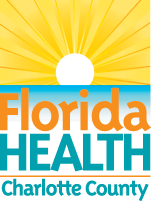It's a New Day in Public Health.
The Florida Department of Health works to protect, promote, and improve the health of all people in Florida through integrated state, county, and community efforts.
Childhood Obesity Awareness Month: Counting the Ways to Reduce the Rates
September 28, 2016
September 23, 2016
Childhood Obesity Awareness Month: Counting the Ways to Reduce the Rates
Healthy Charlotte County is educating area students on the 5-2-1-0 childhood obesity prevention program.
Written by: Abbey Ellner, Florida Department of Health in Charlotte County
Contact:
Jennifer S. Sexton
Jennifer.Sexton@flhealth.gov
941-624-7279
Port Charlotte, Fla. – “5-2-1-0 Keeps My Body On the Go!” Charlotte County Public School second graders will be chanting this mantra during the 2016-2017 school year to reinforce the healthy habits of:
- · 5 - five fruits and vegetables a day,
- · 2 - two hours or less of screen time,
- · 1 - one hour or more of physical activity, and
- · 0 - zero sugary drinks.
September is Childhood Obesity Awareness Month, but local health educators have been working to address this growing epidemic year-round through 5-2-1-0 Let’s Go!. The 5-2-1-0 Let’s Go! childhood obesity prevention program was formed in Maine, in 2006, through the Barbara Bush Children’s Hospital, and has spread across the nation since then in an effort to tackle childhood obesity and prevent chronic diseases in our future generations. Healthy Charlotte County, the community health improvement partnership for Charlotte County, is working towards a healthier community. One of the goals of the partnership is to promote a culture of wellness that increases physical activity in the community. With that goal in mind, the group has implemented 5-2-1-0 In the Schools. Since its debut in April, 2014, the 5-2-1-0 curriculum has been taught to approximately 1,000 Charlotte County students and continues to expand.
Obesity costs the country between $147 and $210 billion each year and Florida now has the 35th highest adult obesity rate in the nation, according to The State of Obesity 2016. Florida’s adult obesity rate is currently 26.8 percent, up from 18.4 percent in 2000 and from 11.4 percent in 1990. Childhood obesity has been called “one of the most serious public health challenges of the 21st century,” according to the World Health Organization. Obesity can harm nearly every system in a child’s body- heart and lungs, muscles and bones, kidneys, and digestive tract, as well as the hormones that control blood sugar and puberty, and can take a heavy social and emotional toll.
Increasing fruit and vegetable consumption and physical activity while decreasing “screen” time and sugar-containing beverages, can have a significant impact on overall health and help control weight. The 5-2-1-0 message in the schools is reinforced through games, like “Go, Slow, Whoa” to rank foods as every day, sometimes, or rarely, naming foods that fit into the different USDA “My Plate” categories of protein, grain, fruit, and vegetable, listing the numerous “screen” time activities available to them, and counting how much sugar is contained in drinks, including Gatorade, Nesquik chocolate milk, and soda. Surveys are completed before and after the lessons to gauge students’ change in knowledge and the effectiveness of the curriculum.
The 5-2-1-0 In the Schools curriculum is currently being offered to second grade students at Charlotte County Public Schools during their physical education class time.
About Healthy Charlotte County
This community health improvement partnership is aimed at improving the health of Charlotte County residents through various initiatives. Our vision for a healthy Charlotte County is a safe, equitable and vibrant community in which people feel empowered to seek and obtain opportunities and services to achieve and maintain a high quality of life. Follow us on Facebook. For more information about Healthy Charlotte County, please visit www.healthycharlottecounty.org.
About the Florida Department of Health
The department, nationally accredited by the Public Health Accreditation Board, works to protect, promote and improve the health of all people in Florida through integrated state, county and community efforts.
Follow us on Twitter at @HealthyFla and on Facebook. For more information about the Florida Department of Health please visit www.FloridaHealth.gov.





Connect with DOH